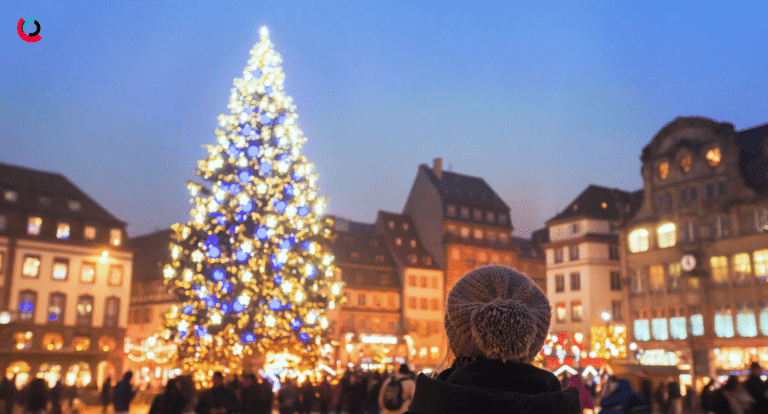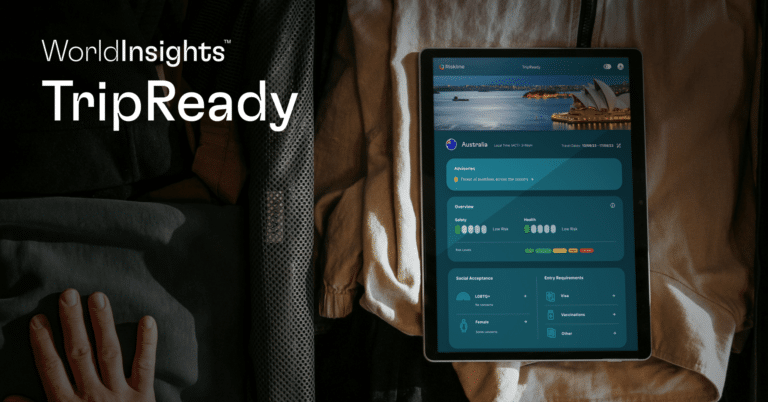By Claudia Gualdi
Overview of travel rules
In the past few months, destinations have been easing travel restrictions in an effort to embrace more COVID-19-tolerant policies and resume international travel. Although European countries saw an autumn surge in COVID-19 cases, travel restrictions have not been reintroduced for the winter months. Some Pacific and Middle Eastern countries have partial entry measures, like testing and self-isolation, but these are less strictly enforced than before 2021.
If travelling to China, Tuvalu, or Turkmenistan, quarantine upon arrival is still mandated. You may be forced to spend it in government facilities. Most other destinations permit travellers to opt-out of self-isolation by taking PCR tests within 24 hours of arrival. Only a handful of countries, namely, Zimbabwe and Eritrea, still maintain nightly public health curfews.
After protests in China, the government is easing its “zero-COVID” policy. Restrictions such as lockdowns, quarantine camps, and mass testing are easing, although the policy is set to remain in place until the end of 2023. While daily infections are likely to surge in the next weeks, as a consequence of the full reopening of businesses in mainland China, ticket sales have soared, especially for domestic travel.
Which other countries have eased restrictions?
Several destinations, such as American Samoa, the Philippines, and India, have relaxed entry restrictions for tourism, allowing unvaccinated travelers to enter.
Since the emergence of COVID-19, health measures pioneered against the virus have also been applied to other epidemic disease outbreaks, such as Mpox. Authorities in Peru and Trinidad and Tobago mandate health screenings upon arrival, testing, and may enforce a 21-day quarantine period for suspected Mpox cases.
Non-medical travel barriers have also increased in the past year, with the return of open warfare in Europe between Russia and Ukraine. Ongoing visa bans for Russian nationals seeking tourist Schengen visas continue to prevent their entry into Estonia, Latvia, and Lithuania. The Czech Republic, Poland, Norway, and Finland have also tightened their visa policies to reduce visa applications. Italy requires Russian nationals to have a biometric passport instead of the old-style international Russian passports. The consular fees for passport issuance to Russians has increased.
Some African nationals banned from entering Dubai on tourist visas from December until further notice. Visa ban introduced by authorities on 18 October without clear explanation.
Mass strikes and flight suspensions are expected in the next few weeks
Authorities expect winter travel to reach pre-pandemic levels, as passenger volumes have increased by over 200% since the start of the year in different airports and airlines, according to the International Air Transport Association (IATA). Travel chaos will likely continue throughout mid-January, with significant disruptions, delays and flight cancellations, particularly in Europe.
Bus and rail drivers, airport workers, and border force employees in France, Spain, Italy, Belgium, the Netherlands, and the United Kingdom (UK) have scheduled multiple strikes. These strikes make these countries the most-affected areas for potential strike-related disruptions. Significant disruptions will impact London airports during the Christmas period.
If you plan to fly during the next several weeks, expect long queues for security checks and baggage claims, long wait times and delays due to staff shortages and ongoing strikes. Crew members of many airlines, namely Lufthansa, TAP Air, Ryanair, Vueling and Air France, have called for multiple strikes, scheduled between mid-December and early January, amid ongoing disputes over working conditions.
Safety risk tips for attending Christmas markets and New Year’s Eve celebrations
From Prague to Manhattan, hundreds of Christmas villages and markets open worldwide. Some are popular tourist attractions, with concerts and celebrations from November to January, street foods, and stalls selling handicrafts and gift ideas.
Although many public events were scaled back over the past three years due to the COVID-19 pandemic, most of them seem to be back on their normal schedule for this holiday season.
Within Europe, cheap flight tickets and multiple organised tours offer travellers the possibility to explore a wide choice of the best Christmas villages. Such as around Germany, the Tivoli Gardens in Copenhagen or the historic Nativity plays of Italy. Expo City in Dubai underwent a transformation into a vast winter wonderland. Welcoming travellers from all over the world after the Emirates fully reopened to international inbound tourists in November.
What other expectations are there?
Anticipate enhanced security checks at entry and long queues on weekends. At many venues, cash is typically the preferred form of payment. Authorities may increase security around market areas and Christian and Jewish houses of worship during Christmas and Hanukkah celebrations. If attending such events, anticipate heightened security, remain vigilant and report suspicious packages or behaviour to local authorities.
Following a relaxation of gathering limits, New Year’s Eve (NYE) celebrations will also resume all over the world. In most places, venues no longer mandate masks, and entry may be unrestricted, irrespective of participants’ vaccination status. Visitors might receive encouragement to undergo testing before entering such venues, where standard sanitary precautions can still apply. Assaults and fights are a potential risk in plazas and squares holding celebrations on NYE’s. Exercise caution during NYE celebrations and fireworks shows and report any suspicious behaviour to local authorities.
Claudia Gualdi is our Greece-based COVID Team Lead. Baya Faure, Catherine Soltero and Farhan Rafi contributed to this article.
Read more on Riskline’s new Travel Search API for smart-travel planning.

